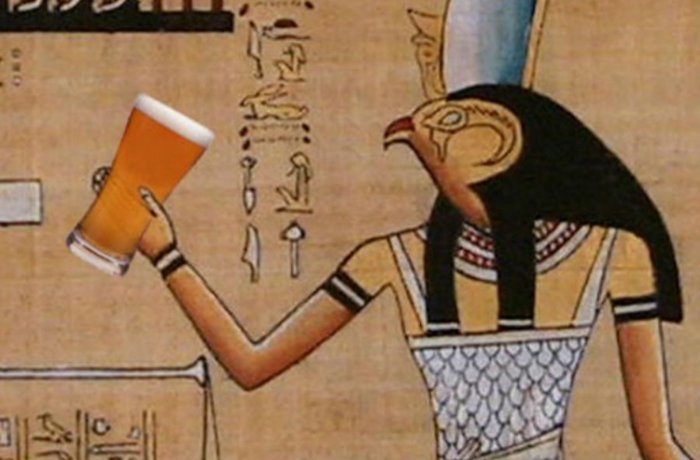Beer Was Used As Medicine And Payment In Ancient Egypt
AncientPages.com - Ancient Egyptians valued beer and used it not only to get drunk but as medicine and payment. Beer was of great importance in ancient Egyptian society and its existence gave women an opportunity to earn extra money.
Both adults and children enjoyed beer, and the drink brought many benefits to Egyptian society. There is also evidence beer played a decisive role during the construction of the pyramids.
Legends tell that god Osiris himself taught humanity the art of brewing. So, naturally, beer was considered the drink of the gods.
Image credit: Cairo Scene
The first known beer was called kui, brewed by the ancient Chinese around 7,000 BC. Kui was made from rice, honey, and fruit, but the first barley beer was most likely born in the Middle East.
However, the oldest evidence of beer is believed to be a 6,000-year-old Sumerian tablet depicting people drinking a beverage through reed straws from a communal bowl. When ancient Egyptians learned about beer, they too wanted to make it part of their society and they quickly noticed all the benefits beer had to offer. The common name for beer in ancient Egypt was heqet (also given as hecht and henket) or tenemu (giving the goddess Tenenet her name), but there were also names for specific types of beer.
Women became the first brewers in ancient Egypt. Wine was the drink of the wealthy. Beer was the staple drink of poor Egyptians but was also central to the diet of wealthy Egyptians.
Ancient Egyptian considered beer to be a powerful medicine that strengthened the body. About 5,000 years ago, doctors in Egypt believed that beer holds the soul (ka). Ancient Egyptians believed the soul had three parts, the ka, the ba, and the akh. Beer was considered a source of nutrition and not just an intoxicant.
Almost 100 Egyptian drugs contained beer, and preserved sources from around 1,500 B.C. show that approximately several patients received medication containing beer.
Wages were often paid in beer and workers living in the workers' village at Giza received beer three times a day as part of their rations. Archaeologists excavating in Egypt have discovered that payment through beer was very common in various parts of the country. This also provides evidence that the great monuments were not built by slaves, but by paid Egyptian labor.
Beer was naturally also used to get drunk. It was classified according to alcoholic strength and flavor, with the average beer having an alcohol content of 3-4% while beer used in religious festivals or ceremonies had a higher alcohol content and was considered of better quality.
During the festivals of Bast, Sekhmet, and Hathor people would get very drunk. Drinking beer was part of their worship of these Egyptian goddesses. Offering beer to gods was also common in ancient Egypt.
Copyright © AncientPages.com All rights reserved. This material may not be published, broadcast, rewritten or redistributed in whole or part without the express written permission of AncientPages.com
Expand for referencesMore From Ancient Pages
-
 Robert The Bruce: Mighty King Of Scots And Great Scottish Hero
Featured Stories | Oct 13, 2016
Robert The Bruce: Mighty King Of Scots And Great Scottish Hero
Featured Stories | Oct 13, 2016 -
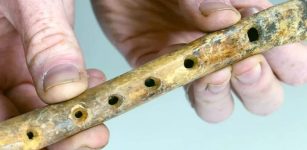 Rare, Well-Preserved Medieval Bone Flute Found In Kent
Archaeology | Nov 24, 2022
Rare, Well-Preserved Medieval Bone Flute Found In Kent
Archaeology | Nov 24, 2022 -
 Native American Population Does Not Originate In Japan – Genetics And Skeletal Biology Questioned
Archaeology | Nov 15, 2021
Native American Population Does Not Originate In Japan – Genetics And Skeletal Biology Questioned
Archaeology | Nov 15, 2021 -
 On This Day In History: British Forces Captured Gibraltar – On August 3, 1704
News | Aug 3, 2016
On This Day In History: British Forces Captured Gibraltar – On August 3, 1704
News | Aug 3, 2016 -
 Probably The Oldest Star Map Discovered In Stone Chamber Of The Kitora Tomb, Asuka Nara, Japan
Ancient History Facts | Jul 19, 2015
Probably The Oldest Star Map Discovered In Stone Chamber Of The Kitora Tomb, Asuka Nara, Japan
Ancient History Facts | Jul 19, 2015 -
 Submerged Ancient Bridge Found In Genovesa Cave Reveals Humans Settled In Mediterranean Much Earlier Than Previously Thought
Archaeology | Sep 2, 2024
Submerged Ancient Bridge Found In Genovesa Cave Reveals Humans Settled In Mediterranean Much Earlier Than Previously Thought
Archaeology | Sep 2, 2024 -
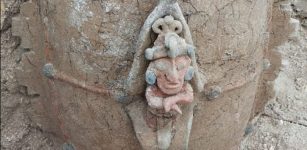 Funerary Urn Depicting The God Of Corn Unearthed In Mexico By INAH Archaeologists
Archaeology | Jan 11, 2024
Funerary Urn Depicting The God Of Corn Unearthed In Mexico By INAH Archaeologists
Archaeology | Jan 11, 2024 -
 Mysterious 4,000-Year-Old Table-Like And Unique Dolmen Discovered In Galilee Hills, Israel
Archaeology | Mar 6, 2017
Mysterious 4,000-Year-Old Table-Like And Unique Dolmen Discovered In Galilee Hills, Israel
Archaeology | Mar 6, 2017 -
 Another Franklin Expedition Crew Member Identified
Archaeology | Sep 26, 2024
Another Franklin Expedition Crew Member Identified
Archaeology | Sep 26, 2024 -
 Knights Templar’s Mysterious Underground Chambers Hidden In The Caynton Caves Discovered
Archaeology | Apr 13, 2021
Knights Templar’s Mysterious Underground Chambers Hidden In The Caynton Caves Discovered
Archaeology | Apr 13, 2021 -
 Re-Writing History Of England’s Domesday Book Of William I The Conqueror
Archaeology | Nov 27, 2018
Re-Writing History Of England’s Domesday Book Of William I The Conqueror
Archaeology | Nov 27, 2018 -
 Abduction Of Idun, Goddess-Keeper Of Golden Juvenile Apples In Norse Mythology
Featured Stories | Nov 16, 2019
Abduction Of Idun, Goddess-Keeper Of Golden Juvenile Apples In Norse Mythology
Featured Stories | Nov 16, 2019 -
 How The Horseshoe Became A Symbol Of Good Luck
Ancient Idioms & Superstitions | Jan 28, 2017
How The Horseshoe Became A Symbol Of Good Luck
Ancient Idioms & Superstitions | Jan 28, 2017 -
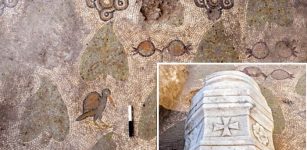 Extraordinary Ancient Mosaics, Crucifixes, And Long-Lost Church Discovered In The Holy Land
Archaeology | Dec 22, 2017
Extraordinary Ancient Mosaics, Crucifixes, And Long-Lost Church Discovered In The Holy Land
Archaeology | Dec 22, 2017 -
 ‘Impossible’ Advanced Ancient Technology In Mesopotamia – Evidence Of Other-Worldly Interaction?
Featured Stories | May 24, 2021
‘Impossible’ Advanced Ancient Technology In Mesopotamia – Evidence Of Other-Worldly Interaction?
Featured Stories | May 24, 2021 -
 Hundreds Of Fascinating 24,000-Year-Old Cave Paintings Discovered In Eastern Iberia
Archaeology | Sep 11, 2023
Hundreds Of Fascinating 24,000-Year-Old Cave Paintings Discovered In Eastern Iberia
Archaeology | Sep 11, 2023 -
 Cornucopia – ‘Horn Of Plenty’ – Ancient Symbol And Its Almost Forgotten Meaning
Ancient Symbols | Jan 14, 2019
Cornucopia – ‘Horn Of Plenty’ – Ancient Symbol And Its Almost Forgotten Meaning
Ancient Symbols | Jan 14, 2019 -
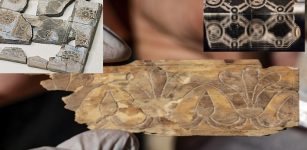 Extraordinary Collection Of Ivory Plaques Dated To The First Temple Period Unearthed In Jerusalem
Archaeology | Sep 8, 2022
Extraordinary Collection Of Ivory Plaques Dated To The First Temple Period Unearthed In Jerusalem
Archaeology | Sep 8, 2022 -
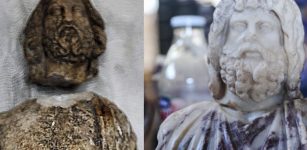 Statues Of Serapis Sky God And Asclepios God Of Medicine Unearthed In Ancient City Of Kibyra
Artifacts | Nov 26, 2020
Statues Of Serapis Sky God And Asclepios God Of Medicine Unearthed In Ancient City Of Kibyra
Artifacts | Nov 26, 2020 -
 Ancient Secrets Of The Aranmula Kannadi Mirror That Reflects You As You Really Look
Artifacts | Sep 10, 2021
Ancient Secrets Of The Aranmula Kannadi Mirror That Reflects You As You Really Look
Artifacts | Sep 10, 2021

